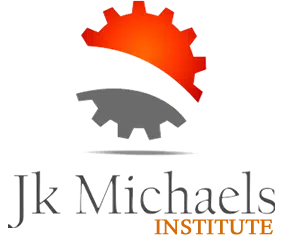Curriculum
- 5 Sections
- 45 Lessons
- 2 Days
Expand all sectionsCollapse all sections
- Introduction – Review of the “Fundamentals”Day 110
- 1.01.1 What is Inventory Management
- 1.1– Working Capital Cycle
- 1.21.2 Why is Inventory Management important
- 1.31.3 Why keep Inventory
- 1.41.4 How much Inventory to Keep
- 1.51.5 The Financial Implications of Holding Inventory
- 1.6– Inventory Carrying Cost
- 1.71.8 Exercises / Practical Application to Workplace
- 1.8– Effect on Financial
- 1.91.6 The Cost of not holding enough Inventory
- Setting the Stage for Effective Inventory Management6
- Inventory Planning9
- 3.03.1 Introduction to Inventory Planning
- 3.13.2 Service Level Policies – OTIF
- 3.23.3 Inventory Categorization Techniques
- 3.3– ABC Analysis
- 3.4– Fast & Slow Moving, Excess, Obsolete & Defective Stocks
- 3.53.4 Traceability and Variety Reduction
- 3.63.5 Inventory Coding Systems
- 3.73.6 The Inventory Management Plan
- 3.83.7 Group Discussion / Practical Application to Work
- Unit 4 – Inventory OperationsDay 29
- 5.04.1 Introduction to Inventory Operations
- 5.14.2 Monitoring Movements
- 5.2– Inventory Accuracy
- 5.34.3 Measuring and Valuation of Inventory
- 5.44.4 Receipt & Issuance of Inventory
- 5.54.5 Systems to Replenish Inventory
- 5.64.6 How Much to Order – EOQ,
- 5.74.7 When to Place an Order – ROP, JIT
- 5.84.8 Exercises / Practical Application to Work
- Unit 5 – Warehouse Planning & Systems11
- 6.05.1 Introduction to Warehouse Planning & Systems
- 6.15.2 Warehouse Location & Acquisition Options
- 6.25.3 Warehouse Design
- 6.35.4 Warehouse Layout
- 6.45.5 Materials Handling & Equipment
- 6.55.6 Warehouse Operations
- 6.65.7 Record Keeping & Communication
- 6.75.8 Perpetual Systems/Continuous Review Systems
- 6.85.9 International Quality Standards
- 6.95.10 Physical Inventory & Cycle Counting
- 6.105.11 Exercises / Practical Application to Work
– Working Capital Cycle
Next
